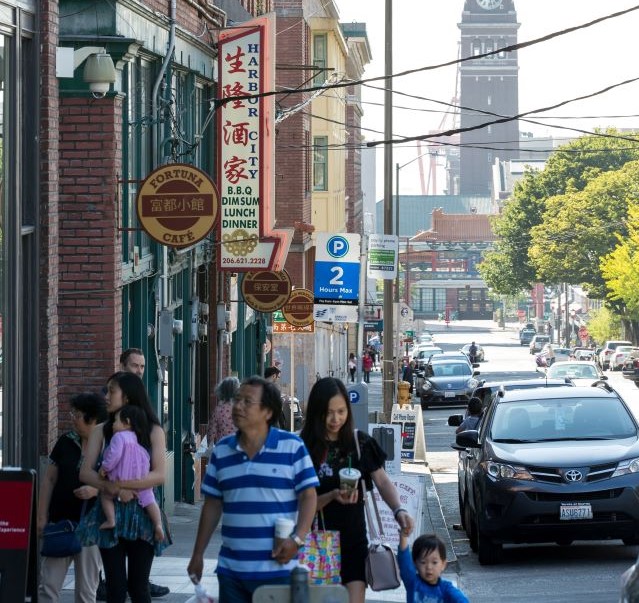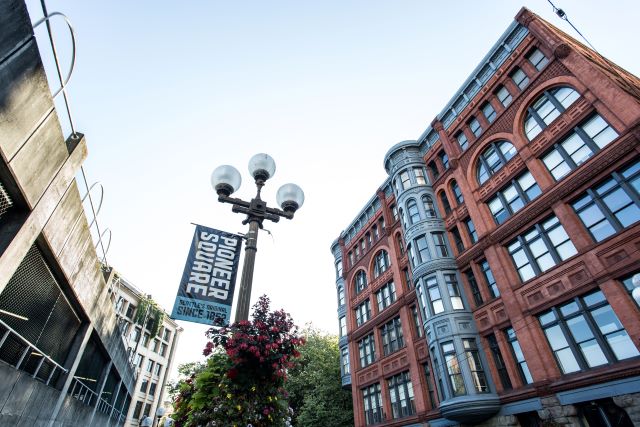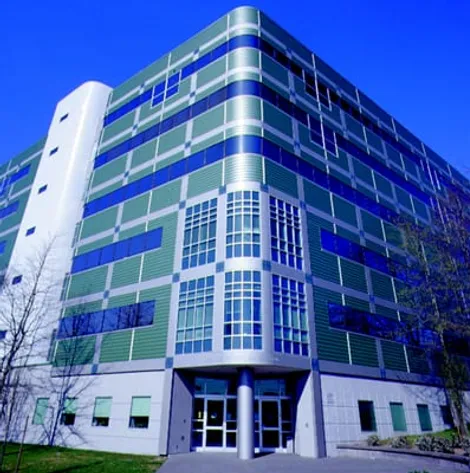Friends and neighbors,
I am immensely proud to represent the most diverse legislative district in our state. Many of our neighborhoods tell the story of our growth as a city and as a state from the pre-territorial period to today. Yet, over time, growth and progress continue to threaten to extinguish the stories of those pioneers who put Seattle and Washington on the map as our communities are displaced and our distinct neighborhoods, histories, and cultures are gentrified.
This is why I introduced legislation in 2007 to establish state agencies known as Community Preservation and Development Authorities (CPDAs) to revitalize, enhance, and preserve the unique character of communities impacted by the decisions of government agencies. CPDAs exist to reduce displacement, to enhance public services, and to preserve historic buildings, returning them to productive uses that are compatible with or that enhance their historic character. Most of all, CPDAs exist to protect the sense of community.

Credit LSS Photography
The very first CPDA – the Historic South Downtown, or HSD – fulfills this mission by ensuring that the neighboring communities of the Pioneer Square and the Chinatown International District can effectively advocate for self-determination in the face of relentless projects proposed in the name of progress. For the Pioneer Square, this means fighting to retain its identity as an historical district of arts and culture rather than to become an entertainment district. The CID honors its Asian American history and traditions, serves as a proud purveyor of Asian goods and services for immigrants, residents, and visitors alike, and refuses to devolve into a defunct tourist cliche. But, with origins coinciding with the start of the Great Recession and after an initial investment of state funding, the HSD was left with few resources to support these communities in their efforts.
This year, we intend to correct this long-standing oversight by providing HSD with a permanent funding source from the state. House Bill 1847 will allow a portion of the state sales and use taxes collected at qualified facilities to support the mission and purpose of HSD, helping this state agency counter and mitigate against the often unintended but harmful impacts of significant land-use decisions and public projects, such as the demolition of the Alaskan Way viaduct or the siting of a permanent mega-shelter. It is high time to recognize, respect, and reinforce the right of our historically and culturally irreplaceable communities to retain their integrity intact. I am so pleased that my colleagues in the House of Representatives clearly agree. We unanimously voted to pass HB 1847 on March 24, 2023. The bill is now in the Senate for further consideration.

Credit LSS Photography
The second CPDA – the Central District Community Preservation and Development Authority (CDCPDA) – honors the visions, voices, and vitality of the historically diverse Central District as well as the civil rights leaders who established an ethos of self-help and self-determination for our growing African American community. The Rev. Dr. Samuel Berry McKinney was instrumental in this movement, nationally and locally, bringing both the Rev. Dr. Martin Luther King, Jr. and the Rev. Dr. Leon Sullivan to Seattle to advocate for and advance the causes of equality, justice, and peace. This is why the former Seattle Vocational Institute bears his name as the McKinney Center for Community and Economic Development, while the CDCPDA restores the building to its intended purpose as a center for employment training and economic opportunity for the disenfranchised and marginalized members of our community.

Photo Credit The McKinney Center/CDCPDA
In a move of poetic justice, the State returned this edifice that had been originally built in 1974 by Rev. McKinney and other African American community leaders and activists to house the Seattle Opportunities Industrialization Center (SOIC), an affiliate of the national OIC movement founded by Dr. Sullivan. At about the same time, SOIC was the first community-based organization to receive federal designation as a Skills Center. The SOIC thrived throughout the heyday of the civil rights movement and the War on Poverty but, with the advent of deep and drastic federal cutbacks to economic empowerment and employment programs in the early 1980s, the SOIC fell into bankruptcy. After a short-lived effort to sustain the job training programs through a public-private partnership called the Washington Institute for Applied Technology, the State inherited the building as the mortgage guarantor and custodially assigned it to the Seattle Central Community College.
Today, this noble neighborhood icon nearly fades into the background as development pressures bow to up-zoning over up-skilling. The CDCPDA is working hard to overcome the $26 million in deferred facility maintenance by the College which makes the building unsafe and, therefore, unusable. The 37th Legislative District delegation – State Senator Rebecca Saldaña, State Representative Chipalo Street, and I – requested full funding for the McKinney Center, but neither the Senate nor House capital budgets included funding for this project. This is especially distressful to me as we acknowledge our obligation as a state to remedy the effects of past historical discrimination with new programs supported with new funding but continue to overlook the very legacy of those who helped to open our collective eyes to discrimination and allow their hard-earned investments deteriorate.
With just under three weeks left to the 2023 Legislative Session,
Thank you,
![]()
Rep. Sharon Tomiko Santos
